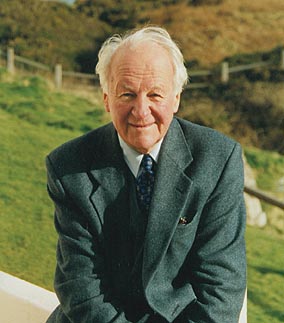 There’s a saying attributed to John Stott: “When Christ is Lord, nothing is secular.” Or try a slightly different phrase from Madeleine L’Engle: “There is nothing so secular that it cannot be sacred, and that is one of the deepest messages of the Incarnation.”
There’s a saying attributed to John Stott: “When Christ is Lord, nothing is secular.” Or try a slightly different phrase from Madeleine L’Engle: “There is nothing so secular that it cannot be sacred, and that is one of the deepest messages of the Incarnation.”
In other words: Everything matters. Everything has spiritual significance when it is submitted to the Lordship of Christ. God cares for our estate. God cares so much that he became incarnate among us, shared in our condition, and made possible — or rather certain — our redemption. Every little thing in your life is either given over to God, or it is not. In either case, it matters. There is no part of your life so minor or so unspiritual that it is truly secular or insignificant.
This comes to mind in light of yesterday’s post on the Budget Control Act. I’m sometimes asked why I write on spiritual and theological matters on the one hand, and on social and political matters on the other. Perhaps if I stopped writing on political matters, I could expand my religious audience; or if I stopped writing on religious matters I could expand my political audience. I understand. Sometimes I deeply enjoy a Christian blogger — until he writes on politics, and then I conclude that he’s bought into some bad ideas. I get it.
But I really cannot separate the two. The earth is the Lord’s and everything in it. Kierkegaard called faith “resting transparently in the power that posits” you, and I believe in my bones that I live and move and have my being in Christ. I apply my faith as best as I can understand it, and the principles and values that flow from my faith as best as I can understand them, to everything in my life. My faith is not a couple beliefs and commitments I keep hidden in a corner. It is the fundamental relationship in my life, and it shapes how I perceive and feel about and take action in relation to everything else.
This, by the way, is not to say that the scriptures – whose authority I honor – provide a blueprint to public policy issues. The scriptures do not tell me the political party to which I should belong, much less the right policies or programs on particular issues. But it is to say that my faith shapes everything, thoroughly, fundamentally and irrevocably. That’s why I feel comfortable making a moral and theological case for certain principles that can guide our actions in the political sphere. But when it comes to particular policies, where we are seeking to apply those principles to the facts on the ground, well, our application can be mistaken, and I will not claim biblical warrant for my possibly-mistaken application of a biblical principle.
I should say: I will never claim biblical warrant for a particular policy or program, unless the application seems perfectly clear. I am willing to say that abortion is morally and theologically wrong, because it seems to me that this is a clear application of biblical principles on the sanctity of life. People who think otherwise are, I believe, not thinking clearly about the implications of their faith. I could be wrong. But I think it is unChristian to support the extermination of unborn human life. I am not willing to say that it is unChristian to support big government. The line between biblical principle and the application of principle to our context is longer and fainter, in that case. I believe I can make a stronger case than the opposition, but I don’t think they’re failing to be rational or failing to be Christian simply because they think otherwise.
What do you think? Are there areas of life that are, simply, secular, and faith-based reasoning has no business there? Is it wrong to think that any biblical principle is clear enough, or its application clear enough, that we can say “Christians should support X” (as, I claim, in the case of abortion)? Or is it wrong to think that we cannot make claims of similar clarity with regard to other issues, such as economics?
With all of these things said, I do have a confession to make. When I wrote the Letter to Harold Camping and watched it go viral, it showed me how much people are craving for compassion online. The atmosphere of social and political discourse has grown so toxic, so antagonistic, that people are positively starving for compassion. When they find it, they treasure it. Some are reminded of the better angels of their nature. Some are glad to find someone they can read without feeling their blood pressure rise. I realized then: Boy, I guess I’m going to have to hold myself accountable now to write more compassionately when it comes to political subjects. My confession is that I often fail at that. I need to do better — and I’ll make every effort.










